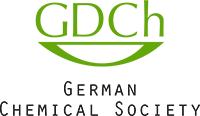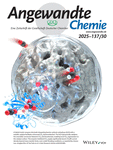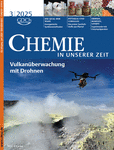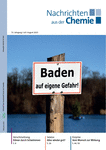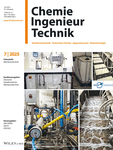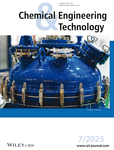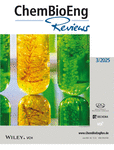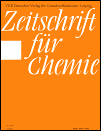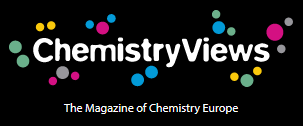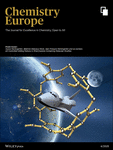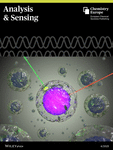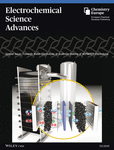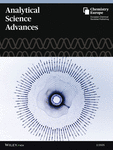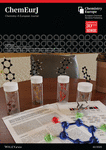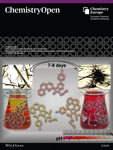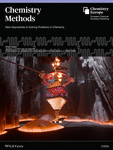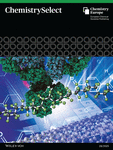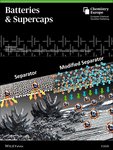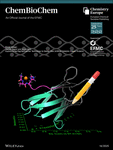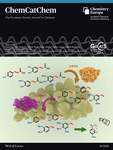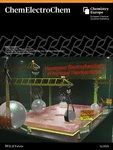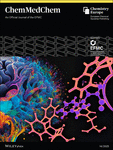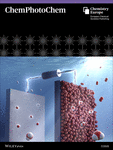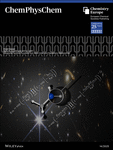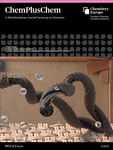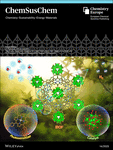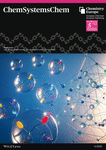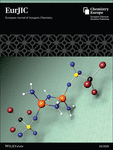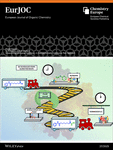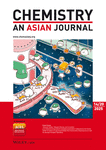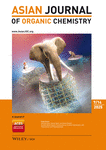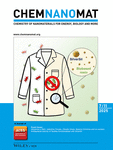Journal list menu
Editorials
Editors of Angewandte Chemie have frequently addressed their readers directly. Therefore, editorials give you an idea of historical developments and current trends as far as the journal, but also chemistry in general is concerned. Browse through them to obtain an impression of how Angewandte Chemie has become the high-profile international journal that it is today.
Starting in 2011, contributions also come from internationally renowned chemists or other scientists, for example, members of the Editorial Board and the International Advisory Board of Angewandte Chemie, who discuss topics such as research politics, the relationship of chemistry and society, and chemical education. The authors present their own personal views, which do not necessarily represent the opinions of the editorial office, the publisher Wiley-VCH, or the Gesellschaft Deutscher Chemiker (GDCh, German Chemical Society).
EarlyView | 2025 | 2024 | 2023 | 2022 | 2021 | 2020 | 2019 | 2018 | 2017 | 2016 | 2015 | 2014 | 2013 | 2012 | 2011 | 2010 | 2009
Paul T. Anastas, Walter Leitner
Transform the World through Chemistry
Angewandte Chemie International Edition 2025, e202512699
EarlyView | 2025 | 2024 | 2023 | 2022 | 2021 | 2020 | 2019 | 2018 | 2017 | 2016 | 2015 | 2014 | 2013 | 2012 | 2011 | 2010 | 2009
Charlotte Gers-Panther, Frank Maaß, Nathalie Weickgenannt
Angewandte Chemie Novit - Elevating Top-Tier Chemistry Research
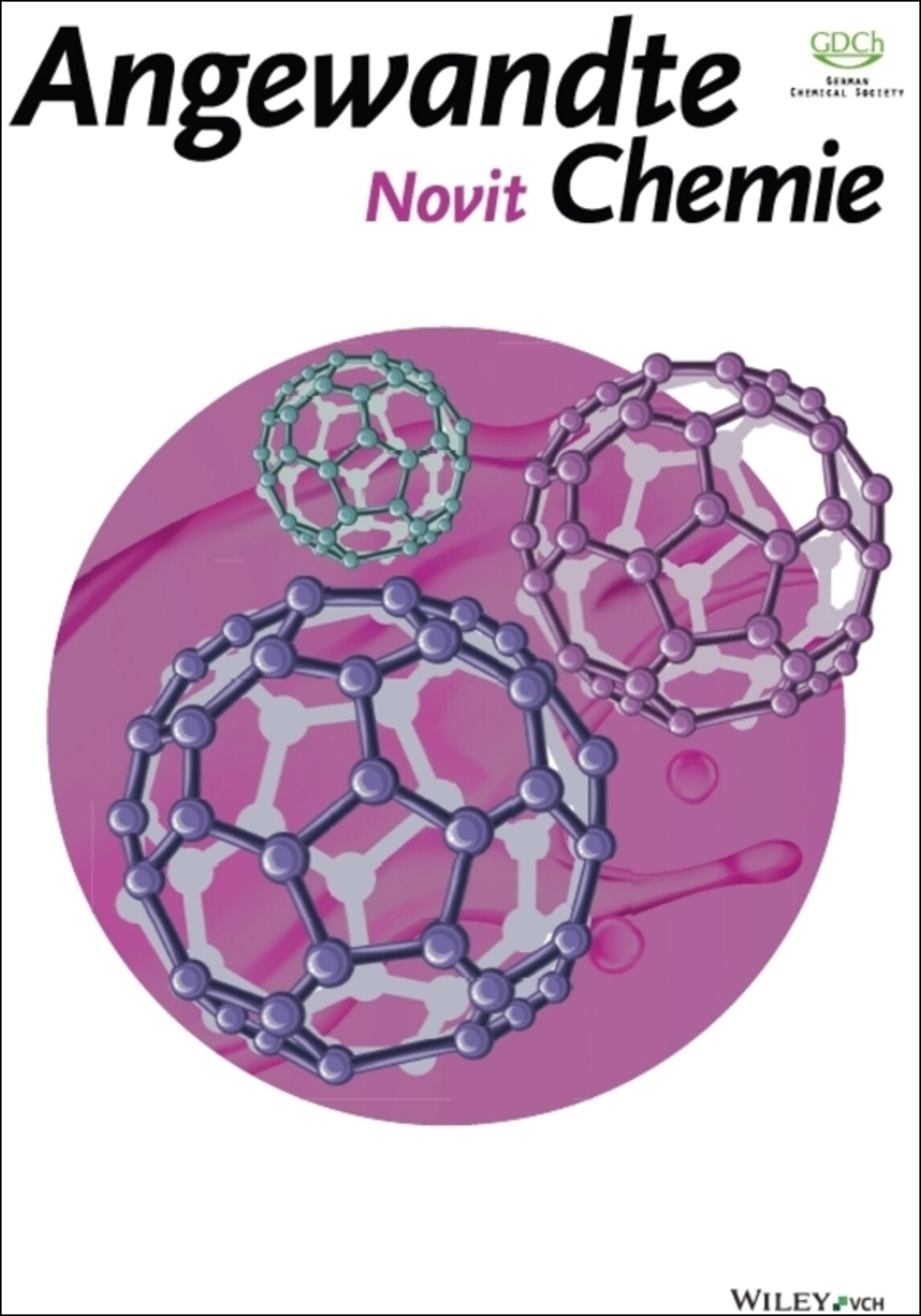
Editor-in-Chief Charlotte Gers-Panther together with Frank Maaß and Nathalie Weickgenannt, Editors-in-Chief of Angewandte Chemie, introduce the new journal Angewandte Chemie Novit — a space for exceptional research in all significant and emerging areas of chemistry.
Angewandte Chemie International Edition 2025, 64, No. 16, e202503680.
Frank Maaß, Nathalie Weickgenannt
Angewandte Chemie: One Journal, Many Faces
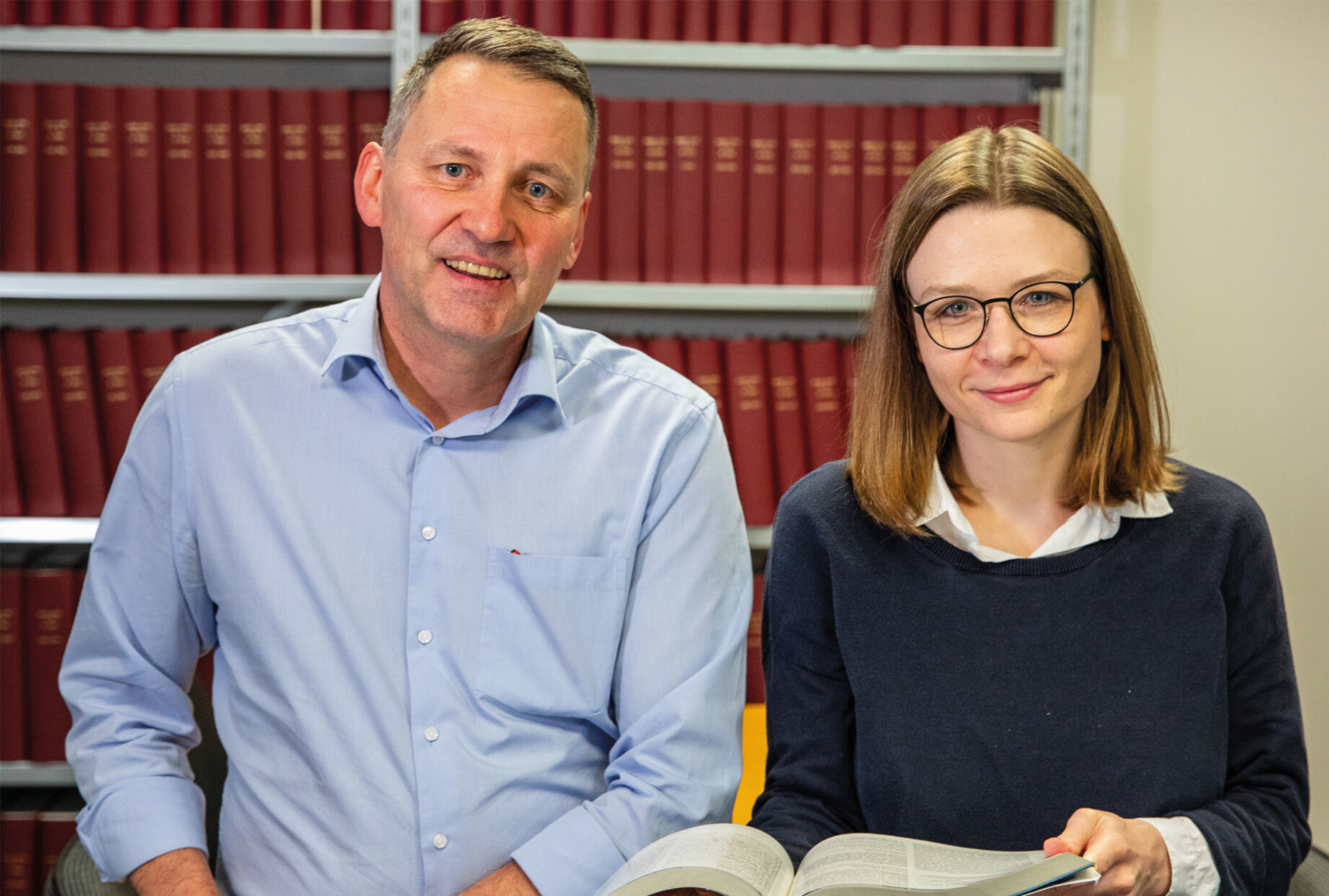
The authors of this Editorial now lead Angewandte Chemie and its editorial team as Editors-in-Chief and will continue to collaborate closely with the German Chemical Society as well as the journal's Scientific Advisory Committee and International Advisory Board in shaping the journal.
Angewandte Chemie International Edition 2025, 64, No. 1, e202423069.
EarlyView | 2025 | 2024 | 2023 | 2022 | 2021 | 2020 | 2019 | 2018 | 2017 | 2016 | 2015 | 2014 | 2013 | 2012 | 2011 | 2010 | 2009
EarlyView | 2025 | 2024 | 2023 | 2022 | 2021 | 2020 | 2019 | 2018 | 2017 | 2016 | 2015 | 2014 | 2013 | 2012 | 2011 | 2010 | 2009
Karsten Danielmeier, Peter R. Schreiner
Rethinking Chemistry
Climate change, loss of natural resources, and geopolitical conflicts are some of the global challenges humanity faces. As chemists, we have the unique possibility and the duty to contribute to a livable future for all. “Rethinking Chemistry” is the motto of the German Chemical Society Science Forum Chemistry (WiFo) 2023 to address these challenges as the guiding principle of all our endeavors and actions.
Angewandte Chemie International Edition 2023, 62, No. 36, e202311238.
Benjamin Mudrak, Sara Bosshart, Wolfram Koch, Allison Leung, Donna Minton, Mitsuo Sawamoto, Sarah Tegen
Five Years of ChemRxiv: Where We Are and Where We Go From Here
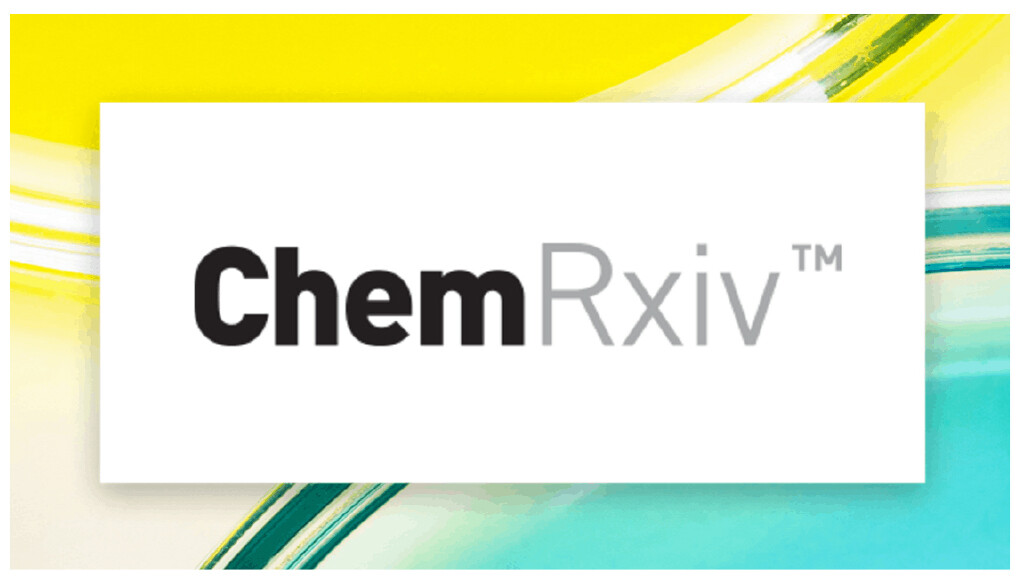
ChemRxiv has grown into the premier preprint server for the chemical sciences, with a global audience and a wide array of scholarly content. On the service's fifth anniversary, we would like to reflect on the past five years and take a look at what is next for ChemRxiv.
Angewandte Chemie International Edition 2023, 62, No. 2, e202215847.
Nathalie Weickgenannt, Frank Maaß, Theresa Kueckmann, Xin Su, Suzanne Tobey
Angewandte Chemie: A Team Effort
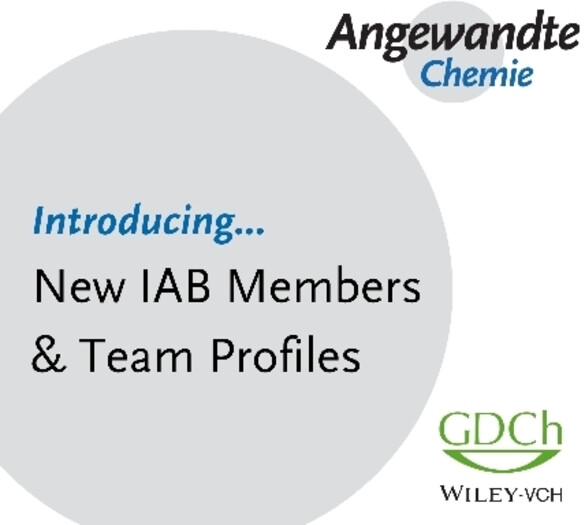
While the number of submissions to the journal continued to increase in 2022, the Editorial Team also implemented a number of changes with support of the GDCh and the journal's advisory bodies. For example, “Team Profiles” are author profiles that celebrate joint efforts as the basis of an inclusive research culture. In looking forward, two new members will join the International Advisory Board in 2023.
Angewandte Chemie International Edition 2023, 62, No. 1, e202217572.
EarlyView | 2025 | 2024 | 2023 | 2022 | 2021 | 2020 | 2019 | 2018 | 2017 | 2016 | 2015 | 2014 | 2013 | 2012 | 2011 | 2010 | 2009
Neville Compton, Theresa Kueckmann, Frank Maaß, Xin Su, Suzanne Tobey, Nathalie Weickgenannt
Angewandte Chemie Continues To Evolve into 2022
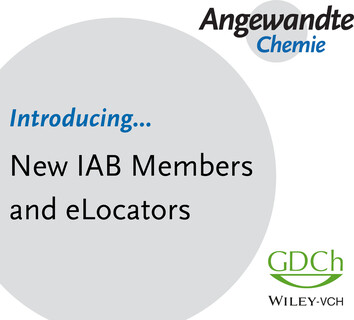
In 2021, among other changes, Angewandte Chemie established a new governance structure with ten Advisory Editors and a redefined International Advisory Board (IAB) and introduced new article types. The journal will continue to evolve in 2022 and beyond, with five new IAB members and the move from the use of page numbers to eLocators as the first changes of the new year.
Angewandte Chemie International Edition 2022, 61, No. 1, e202116340.
EarlyView | 2025 | 2024 | 2023 | 2022 | 2021 | 2020 | 2019 | 2018 | 2017 | 2016 | 2015 | 2014 | 2013 | 2012 | 2011 | 2010 | 2009
Pilar Calleja, Eric Castro, Kim Meyer, Lisa Pecher, Rachel Schmidt-Radde, Mathias Wiechen
Angewandte Chemie Launches Scientific Perspectives and Viewpoint Articles
To better support researchers and contribute constructively to international scientific discourse, Angewandte Chemie has launched two opinion-based article categories with the support of the German Chemical Society (GDCh) and the journal's governing bodies. Scientific Perspectives outline best practice in the chemical sciences while Viewpoint Articles address the culture of the chemical community.
Angewandte Chemie International Edition 2021, 60, No. 44, 23468–23469.
Neville Compton, Theresa Kueckmann, Frank Maaß, Xin Su, Suzanne Tobey, Nathalie Weickgenannt
Angewandte Chemie’s Redefined International Advisory Board: Strengthening Connections between the Journal and Its Community
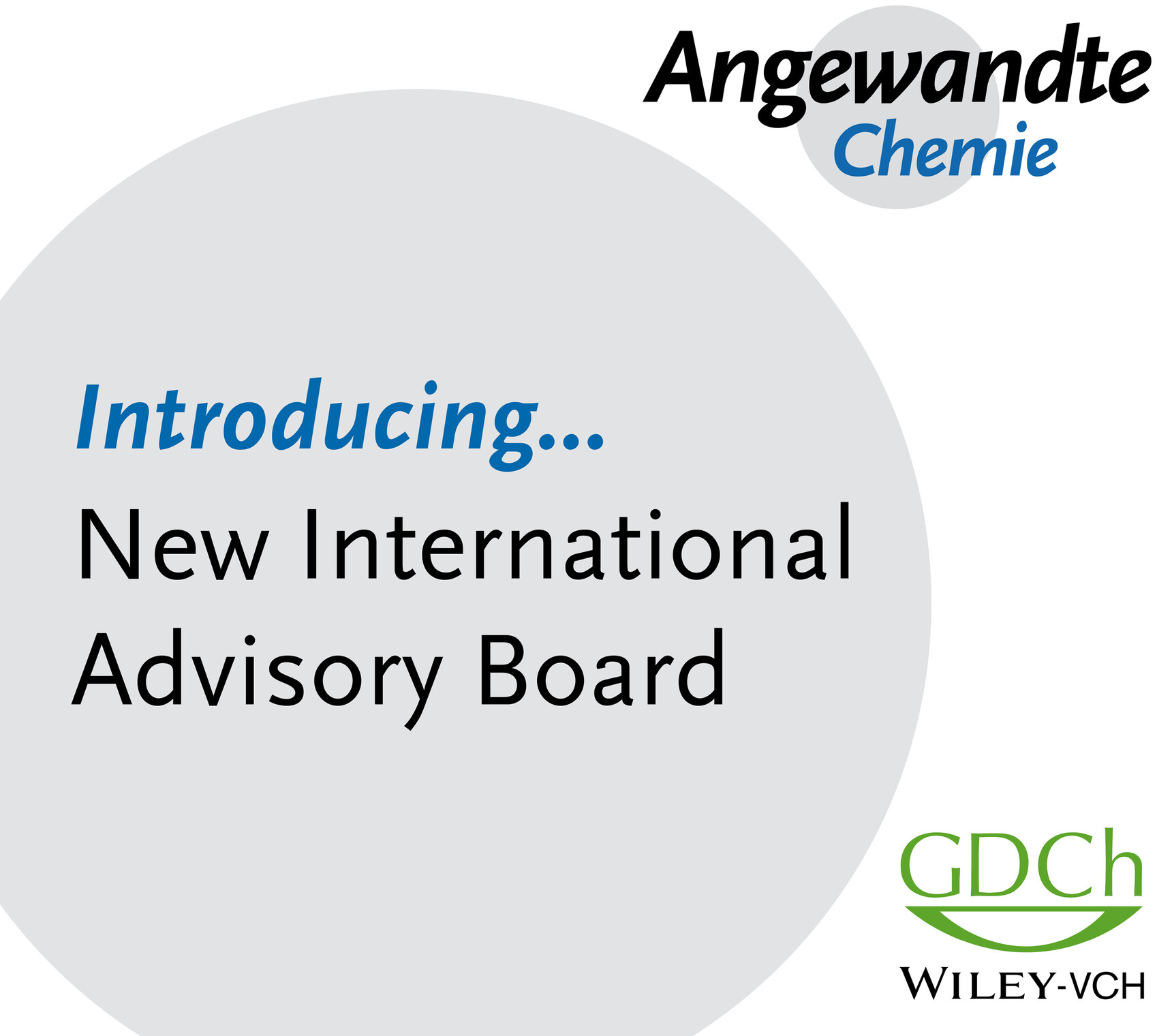
Over the past months, the Angewandte Chemie Council and the Executive Committee have carefully reflected on the role of the International Advisory Board (IAB) as we continue to transform Angewandte Chemie into a more inclusive home for excellent science. With the announcement of our redefined IAB in this Editorial, the new governance structure of Angewandte Chemie is completed.
Angewandte Chemie International Edition 2021, 60, No. 33, 17752–17754.
Annette G. Beck-Sickinger, Neville Compton, Wolfram Koch, Theresa Kueckmann, Katharina Landfester, Frank Maaß, Peter R. Schreiner, Xin Su, Suzanne Tobey, Nathalie Weickgenannt
Introducing… Advisory Editors and New Author Profiles at Angewandte Chemie
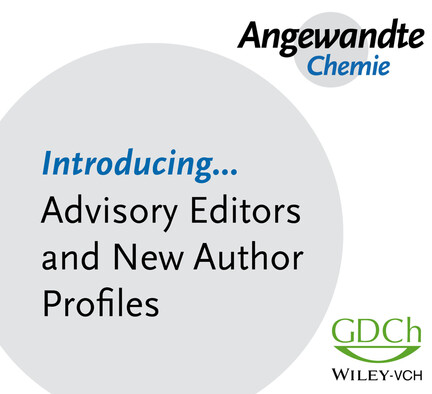
One year ago, Angewandte Chemie pledged to become a more inclusive and diverse journal. We have made significant progress, but our work is not done. Starting today with the inaugural ten Advisory Editors of the journal and our new Author Profiles “Introducing…”, and continuing over the next several months, we are pleased to share our achievements so far and our plans for the future.
Angewandte Chemie International Edition 2021, 60, No. 31, 16720–16722.
Javier Garcia-Martinez
Chemistry 2030: A Roadmap for a New Decade
This new decade poses many new challenges at many different levels. The SIDE vision for Chemistry 2030 gathers the main recommendations from various organizations and initiatives and provides a roadmap for the advancement of chemistry and to respond to increasingly complex and interconnected challenges.
Angewandte Chemie International Edition 2021, 60, No. 10, 4956–4960.
EarlyView | 2025 | 2024 | 2023 | 2022 | 2021 | 2020 | 2019 | 2018 | 2017 | 2016 | 2015 | 2014 | 2013 | 2012 | 2011 | 2010 | 2009
Theresa Kueckmann, Neville Compton, Frank Maaß, Xin Su, Nathalie Weickgenannt
Redefining Angewandte Chemie as an Inclusive Home for Excellent Science
Angewandte Chemie has the responsibility to foster an inclusive environment in chemistry for all. We see the world around us changing, and we are changing with it. We have begun shaping a new version of our journal, with diversity, equity, and inclusion, transparency, and a continued commitment to scientific excellence as the guiding principles.
Angewandte Chemie International Edition 2020, 59, No. 52, 23348–23349.
Esther Cai Xia Ang, Choon-Hong Tan
Golden Jubilee of Singapore National Institute of Chemistry (1970-2020): Celebrating its Partnership with Wiley-VCH
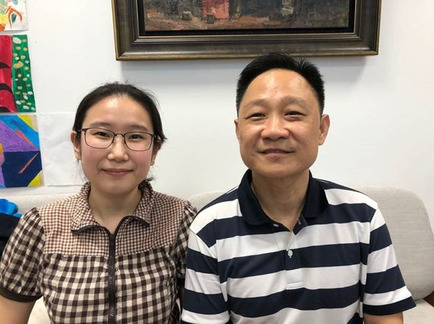
This year Singapore National Institute of Chemistry (SNIC) is celebrating its golden jubilee (1970-2020). Wiley-VCH has been a steadfast partner accompanying the rapid rise of chemistry research in Singapore. In celebration of this golden jubilee, we highlight 50 significant papers published in Angewandte Chemie by scholars currently based in Singapore, covering the widest possible spectrum of chemistry research.
Angewandte Chemie International Edition 2020, 59, No. 45, 19728–19731.
Stephan Lütz, Andreas Liese
30 Years of Safe Genetic Engineering in Germany
The rapid development of new techniques for genome editing is a good reason to summarize the current state of the debate. In a joint statement, the National Academy of Sciences Leopoldina, the German Research Foundation, and the Union of German Academies of Sciences and Humanities present proposals to regulate the use of genome-editing methods.
Angewandte Chemie International Edition 2020, 59, No. 33, 13668–13669.
Annette G. Beck-Sickinger, Thomas Carell, Stefanie Dehnen, Walter Leitner, Peter R. Schreiner, Helma Wennemers
From Scientists to Scientists—Moving Angewandte into the Future
On June 4, 2020, an Essay entitled “Organic synthesis-Where now?” is thirty years old. A reflection on the current state of affairs was published on the website of Angewandte Chemie as an “Accepted Article”. The article should have never been published, and we join the editors of Angewandte Chemie in sincerely apologizing for the offensive and misguided essay.
Angewandte Chemie International Edition 2020, 59, No. 31, 12548–12549.
Bernd Giese, Herbert Mayr, Hans-Ulrich Reissig
Rolf Huisgen (1920-2020)
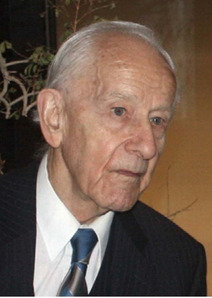
Rolf Huisgen would have celebrated his 100th birthday this year. Three of his academic progeny look back on Huisgen as a person, teacher, and scientist. They underline his leading role in rebuilding the chemistry department in Munich after the Second World War and the enduring importance of the 1,3-dipolar cycloaddition (Huisgen reaction).
Angewandte Chemie International Edition 2020, 59, No. 30, 12228–12232.
Bin Liu, Ben Zhong Tang
Aggregation-Induced Emission: More Is Different
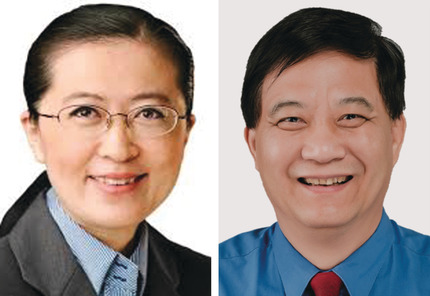
“Aggregation-induced emission research has brought us to the meso territory, where the synergy and cooperation between many molecules in the aggregate make it different from its elementary components. … Let's enthusiastically embrace the opportunity to develop meso science and to innovate meso technology, and make our planet a brighter place to live!” Read more in the Guest Editorial by B. Liu and B. Z. Tang.
Angewandte Chemie International Edition 2020, 59, No. 25, 9788–9789.
Neville Compton
Angewandte Chemie—The Home of Excellent Chemistry
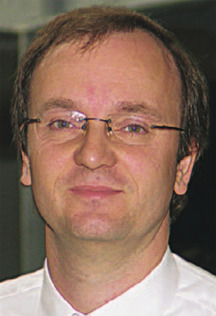
Opening its doors to even more excellent chemistry, Angewandte Chemie's decision to add Research Articles has further expanded the choices available to authors. The flagship journal of the German Chemical Society now offers a home for all different forms of excellent chemistry.
Angewandte Chemie International Edition 2020, 59, No. 1, 4–7.
EarlyView | 2025 | 2024 | 2023 | 2022 | 2021 | 2020 | 2019 | 2018 | 2017 | 2016 | 2015 | 2014 | 2013 | 2012 | 2011 | 2010 | 2009
Katharina Kohse-Höinghaus, Harald Fuchs, Tao Zhang, Yueliang Wu
Explore the Unknown—The Value of Basic Research
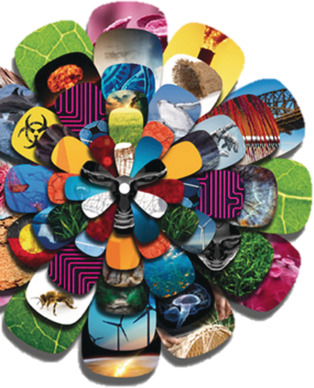
The Beijing Declaration on basic research was recently signed by Presidents of the Chinese Academy of Sciences (CAS) and the German National Academy of Sciences, Leopoldina. With this undertaking both academies underlined their joint efforts to “promote the scientific spirit”, strive for excellence, encourage collaborative, inclusive and responsible scientific research, and foster a favorable environment for scientific development.
Angewandte Chemie International Edition 2019, 58, No. 50, 17882–17884.
Mario Biagioli
Before and After Photoshop: Recursive Fraud in the Age of Digital Reproducibility

“Word-processing software, SCIgen, or Photoshop have increased fraudulent output, but … they have also changed the very form of fraud. Photoshop and similar tools are thus enabling something that is categorically new: recursive fraud, that is, the serial digital reproduction and dissemination of more fraud.” Read more in the Guest Editorial by M. Biagioli.
Angewandte Chemie International Edition 2019, 58, No. 46, 16334–16335.
Neville Compton
Strong Partnerships and European Collaboration

Chemistry—The Essential Element is the motto of the Science Forum Chemistry (Wissenschaftsforum Chemie) taking place in Aachen, Germany. This is fitting both given that this year has been designated the International Year of the Periodic Table of Chemical Elements and that an essential element of science is cooperation and collaboration. This year's conference is cohosted by the German Chemical Society (GDCh), the Dutch Chemical Society (KNCV), and the Belgian Chemical Society (KVCV).
Angewandte Chemie International Edition 2019, 58, No. 37, 12722–12724.
Sonja Herres-Pawlis, Oliver Koepler, Christoph Steinbeck
NFDI4Chem: Shaping a Digital and Cultural Change in Chemistry
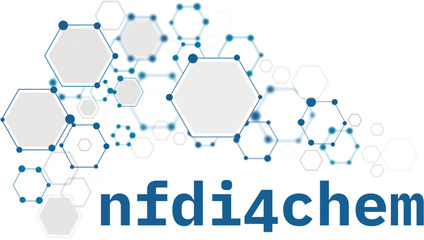
“The formation of a National Research Data Infrastructure for Chemistry (NFDI4Chem), integrated into a National Research Data Infrastructure for all scientific disciplines, is a great opportunity for our discipline. Proper research data management is the basis for good scientific practice and opens up new fields of research …” Read more in the Guest Editorial by S. Herres-Pawlis et al.
Angewandte Chemie International Edition 2019, 58, No. 32, 10766–10768.
Srinivasan Chandrasekaran, Srivari Chandrasekhar, Sandeep Verma
Editorial: The National Organic Symposium Trust—Shaping Organic Chemistry in India for Over 30 Years
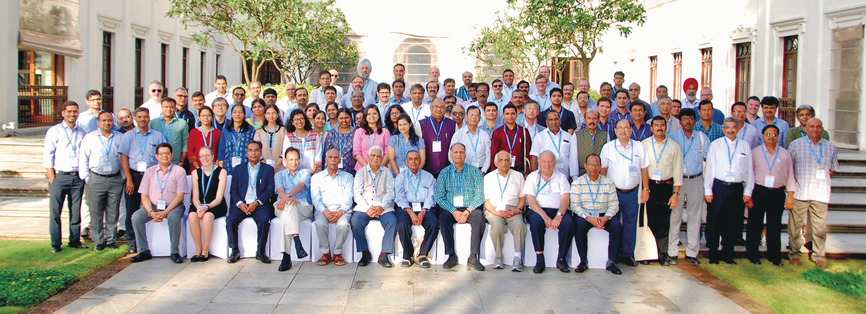
Reasons to celebrate! The National Organic Symposium Trust (NOST) celebrated its 30th anniversary in 2018. This organization has been instrumental in shaping and influencing organic chemistry research in India.
Angewandte Chemie International Edition 2019, 58, No. 28, 9294–9295.
Katharina Boele-Woelki, Cathleen Fisher, Hans-Christian Pape, Joseph S. Francisco
Editorial: Securing Academic Freedom through Networks
“Academic freedom does not exist for its own sake. Its foundational purpose is to create an environment of openness to advance inquiry in the interest of seeking truth, to support, facilitate, and enable the best minds of our time, and to train the next generation of young researchers to fulfill their roles in society …” Read more in the Guest Editorial by Joseph S. Francisco et al.
Angewandte Chemie International Edition 2019, 58, No. 25, 8246–8248.
Stephen T. Liddle
International Year of the Periodic Table: Lanthanide and Actinide Chemistry
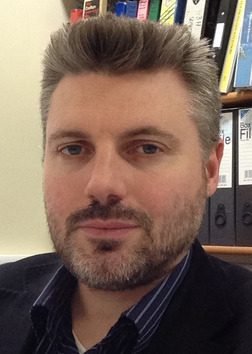
“Lanthanides find extensive applications in displays, magnets, batteries, contrast reagents, and biological probes, and actinides are central to nuclear fuel and fire alarms. … Given the very basics of lanthanide and actinide chemistry are being frequently redefined this is a fascinating and exciting area that promises many surprises in the future. …” Read more in the Guest Editorial by S. T. Liddle.
Angewandte Chemie International Edition 2019, 58, No. 16, 5140–5141.
Christoph E. Düllmann
118 and Counting … The Periodic Table on its 150th Anniversary

“Is there still room for more elements in the modern periodic table with its currently 118 elements? Will we need another extra series in the periodic table besides the classical s-, p-, and d-block, and the lanthanides/actinides? Will the periodic table in this region still feature periodicity? …” Read more in the Guest Editorial by C. E. Düllmann.
Angewandte Chemie International Edition 2019, 58, No. 13, 4070–4072.
Erwin Reisner
When Does Organic Photoredox Catalysis Meet Artificial Photosynthesis?
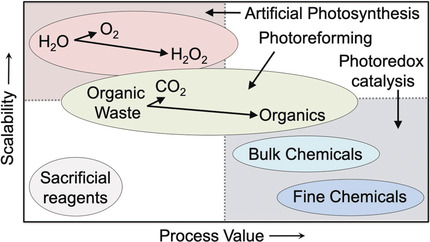
“Although the same basics of photocatalysis unite applications in artificial photosynthesis, photoreformation, photoredox catalysis and photodynamic therapy, they are being developed in surprising isolation. … This editorial is a call to join forces and embrace progress in all of these areas to enable accelerated development of a more holistic science in photocatalysis. …” Read more in the Guest Editorial by E. Reisner.
Angewandte Chemie International Edition 2019, 58, No. 12, 3656–3657.
Gautam R. Desiraju
Science And Society—What Do They Owe Each Other?
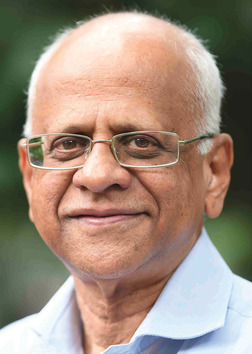
“Scientists owe it to society to provide guidance, leadership, and above all, moral stature, so that they become role models… Both knowledge and wealth are acquired only through the pursuit of truth. This is smoothly achieved when then there is a seamless exchange of unspoken thought between science and society. …” Read more in the Guest Editorial by G. R. Desiraju.
Angewandte Chemie International Edition 2019, 58, No. 11, 3232–3234.
Stephen A. Matlin, Vivian W. W. Yam, Goverdhan Mehta, Alain Krief, Henning Hopf
The Need for Cultural Competence in Science: A Practical Approach to Enhancing Equality, Diversity, and Inclusion

“The entire field of science needs to enhance its performance with regard to equality, diversity, and inclusion …” Read more in the Editorial by S. A. Matlin, V. W. W. Yam et al.
Angewandte Chemie International Edition 2019, 58, No. 10, 2912–2913.
Neville Compton
Chemistry for All: Advocating Gender Equality
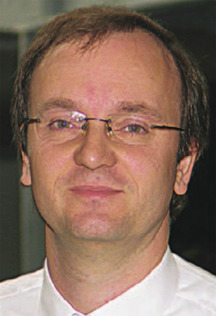
International Women's Day is celebrated every year on March 8, and this special issue of Angewandte Chemie focussing on Women in Chemistry coincides with International Women's Day 2019. The breadth and quality of content is testament to the excellent research being done in groups being successfully run by female researchers.
Angewandte Chemie International Edition 2019, 58, No. 10, 2910–2911.
Ulrich A. K. Betz
The Darmstadt Science Declaration: Make Science Not War
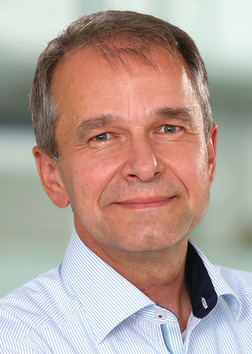
“… We will only be able to solve significant challenges with further progress in science and technology applied to the benefit of humanity. The Darmstadt Science Declaration is a global call to action to devote more resources to the advancement of science and technology to enable humanity to solve the challenges of today and to realize the dreams of a better tomorrow …” Read more in the Guest Editorial by Ulrich A. K. Betz.
Angewandte Chemie International Edition 2019, 58, No. 4, 922–923.
Neville Compton
Celebrate Chemistry's Essential Elements
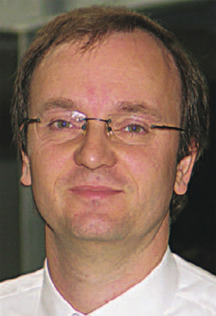
Let's make it a year to celebrate: 2019 has been designated the International Year of the Periodic Table of Chemical Elements. This provides an ideal opportunity for chemists to showcase all the positive things they do for society.
Angewandte Chemie International Edition 2019, 58, No. 1, 4–8.
EarlyView | 2025 | 2024 | 2023 | 2022 | 2021 | 2020 | 2019 | 2018 | 2017 | 2016 | 2015 | 2014 | 2013 | 2012 | 2011 | 2010 | 2009
Norman Sieroka, Vivianne I. Otto, Gerd Folkers
Guest Editorial: Critical Thinking in Education and Research—Why and How?
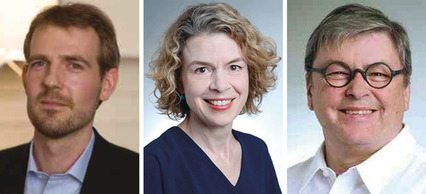
“A responsible scientist is able to step back, critically reflect on his or her own doings, and also explain them to a wider audience. Critical thinking includes the ability to talk to people working in other areas, as well as the broader public. It has to be taught to students and fostered at the university level, and should be practiced in relation to one's own work …” Read more in the Guest Editorial.
Angewandte Chemie International Edition 2018, 57, No. 51, 16574–16575.
Neil K. Garg
Empowering Students to Innovate: Engagement in Organic Chemistry Teaching
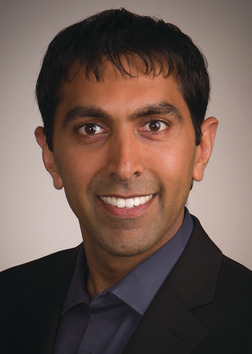
“… Students are creative and they love to solve tough problems. We need to support them as they learn, and give them opportunities to recognize their own potential. Allowing students to innovate is a winning formula … Read more in the Guest Editorial by Neil K. Garg.
Angewandte Chemie International Edition 2018, 57, No. 48, 15612–15613.
Wolfgang A. Herrmann
Editorial: 150 Years of the Technische Universität München: Innovation since 1868
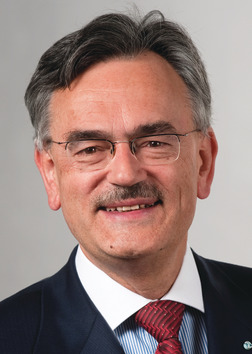
“… On Easter Sunday 1868, the decree founding the Polytechnische Hochschule München (today′s Technische Universität München; TUM) was signed by the 23-year-old Ludwig II, King of Bavaria. Entrepreneurial spirit has been a hallmark of the TUM from the start, and it was the first German university to have a branch abroad. Interdisciplinary research is key, not least in the Department of Chemistry …” Read more in the Guest Editorial by Wolfgang A. Herrmann.
Angewandte Chemie International Edition 2018, 57, No. 44, 14296–14298.
Katharina Boele-Woelki, Joseph S. Francisco, Ulrike Hahn, Joachim Herz
How We Can Rebuild Trust in Science—And Why We Must
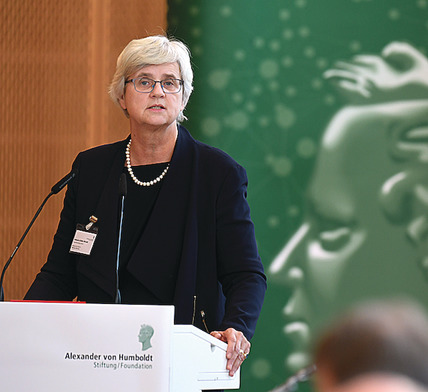
“… Achieving our core mission, namely progress through knowledge, now requires two kinds of communication: one to our scientific peers, but another, more fraught yet critical, to the broader public. As scientists, we need to forge a better relationship between the world of research and the general public …” Read more in the Guest Editorial by K. Boele-Woelki, J. S. Francisco, U. Hahn, and J. Herz.
Angewandte Chemie International Edition 2018, 57, No. 42, 13696–13697.
Martyn Poliakoff, Peter Licence, Michael W. George
A New Approach to Sustainability: A Moore's Law for Chemistry
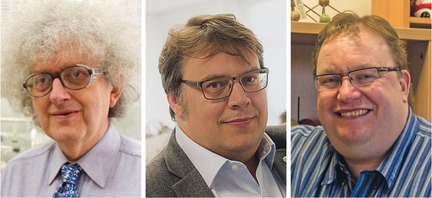
“… How do we have a major impact on delivering sustainable chemistry? Carbon-neutral laboratories can drive down the environmental costs of chemistry. We propose that sustainable chemistry requires some overarching goal that can be embraced by everyone in the chemical supply chain as well as by the public …” Read more in the Guest Editorial by Martyn Poliakoff, Peter Licence, and Michael W. George.
Angewandte Chemie International Edition 2018, 57, No. 39, 12590–12591.
Monika Pischetsrieder
Global Food-Related Challenges: What Chemistry Has Achieved and What Remains to Be Done

“… Food chemistry has the important task to improve food security by the development of applicable strategies to give perishable products longer shelf lives. The discovery of unknown food contaminants and adulterants that are not being searched for is crucial in order to avoid scandals and to provide safe and pure food for the consumer …” Read more in the Guest Editorial by Monika Pischetsrieder.
Angewandte Chemie International Edition 2018, 57, No. 36, 11476–11477.
Stefanie Dehnen
Mainstream—or not To Be? A Plea for Original Fundamental Research

“… If we succeed in teaching our academic scholars how much value can be created by studies that may initially seem purposeless or curiosity-driven, then the diversity of chemical research may (again) have good prospects. For this, we must support young researchers to the best of our ability …” Read more in the Guest Editorial by Stefanie Dehnen.
Angewandte Chemie International Edition 2018, 57, No. 33, 10386–10387.
Pilar Goya
EuCheMS ECC7 in Liverpool: Chemistry and More!
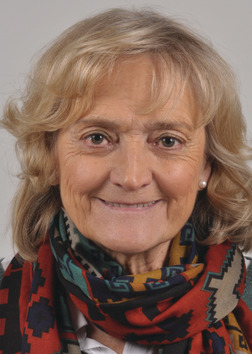
“… Our mission is to promote the role and image of the chemical and molecular sciences among policymakers and the public, and to present chemistry as an essential and indispensable provider of solutions to global challenges. We actively encourage the need to place chemistry at the heart of policymaking in Europe. We are able to speak with one single independent voice while representing a large diversity of chemical societies …” Read more in the Guest Editorial by Pilar Goya.
Angewandte Chemie International Edition 2018, 57, No. 33, 10384–10385.
John Holman, Edwin Silvester
Chemistry Has No Nationality
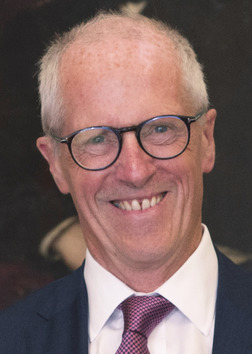
“… Our job is to make absolutely sure that the needs of science are made very clear to government, and are emphasised again and again and again. Because I really believe that strong science benefits everyone. It's not just scientists who benefit: we all benefit from scientific discoveries, and a country with a strong base in science will have a strong knowledge economy …” Read more in the Editorial by Sir John Holman and Edwin Silvester.
Angewandte Chemie International Edition 2018, 57, No. 31, 9558–9559.
Peter R. Schreiner
Thoughts on Chemistry and Scientific Truth in Post-Factual Times
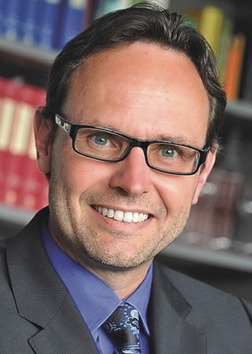
“… The value and meaning of scientific truth has not been overcome by postmodernism or post-factual tendencies. Just because politics is mostly a representation of opinions, this does not imply that truth has become irrelevant. Quite the opposite, the value of truth is growing in turbulent times and for scientists it constitutes the currency of credibility and accountability …” Read more in the Guest Editorial by Peter R. Schreiner.
Angewandte Chemie International Edition 2018, 57, No. 28, 8336–8337.
Matija Strlič
Heritage Science: A Future-Oriented Cross-Disciplinary Field
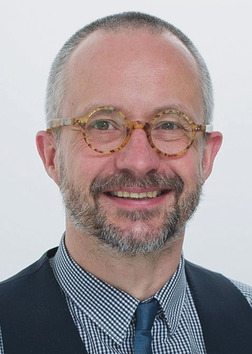
“Heritage science is the study of interpretation and management of the material evidence of the humankind. It enables both society and individuals to exercise their right to cultural heritage and contributes to our understanding of who we are and our sense of place. Heritage science demonstrates its relevance to, as well as its deep roots in chemistry, and in other physical and engineering sciences …” Read more in the Guest Editorial by Matija Strlič.
Angewandte Chemie International Edition 2018, 57, No. 25, 7260–7261.
Philipp Adelhelm
Editorial: The Energy Challenge, Batteries, and Why Simple Math Matters
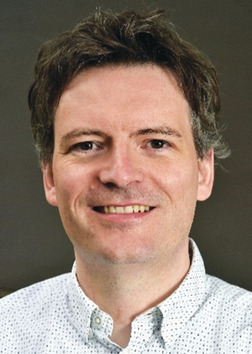
“Despite the great progress we have seen in the last 20 years, we are still far from having a sustainable energy supply … When discussing the Energiewende, the relevant numbers are so large that they are hard to realize. How can we understand the dimension of the Energiewende in a more concrete way? …”. Read more in the Editorial by Philipp Adelhelm.
Angewandte Chemie International Edition 2018, 57, No. 23, 6710–6711.
Steven V. Ley
The Engineering of Chemical Synthesis: Humans and Machines Working in Harmony

“Chemical synthesis has previously tended to rely heavily on robust labour-intensive processes. We have been advocating a machine-assisted approach to synthesis for many years. To replace a bench chemist with a machine is not only unrealistic but impossible. What is realistic is to use this rapidly developing array of equipment and novel concepts to take us way beyond where we are today …”. Read more in the Guest Editorial by Steven V. Ley.
Angewandte Chemie International Edition 2018, 57, No. 19, 5182–5183.
Stefan Oschmann
Curious about the Future
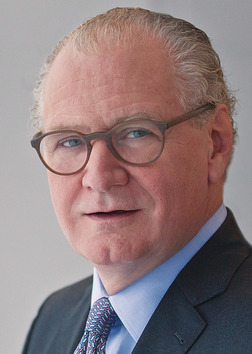
“… We must excite people about the value and possibilities of science. For this we need ambitious plans that push the boundaries of what is possible. They can unleash a passion for discovery and a desire to pursue the new and the unknown. I am convinced that groundbreaking innovation is possible. Responsible entrepreneurship and scientific curiosity can still take us a lot further …” Read more in the Editorial by Stefan Oschmann.
Angewandte Chemie International Edition 2018, 57, No. 16, 4108–4109.
Gilberte Chambaud
Driving Chemistry and Europe
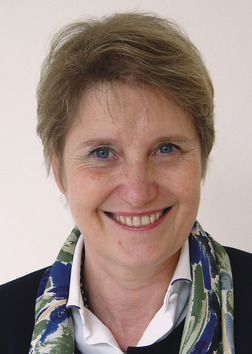
“… Mobility that favors individual exchanges between researchers is extremely important for the scientific community. The merging of scientific publications within a consortium of European journals and the creation of the European Chemistry Congresses have been major successes …” Read more in the Guest Editorial by Gilberte Chambaud.
Angewandte Chemie International Edition 2018, 57, No. 9, 2264–2265.
Mattias Björnmalm, Frank Caruso
Robust Chemistry: The Importance of Data and Methods Sharing
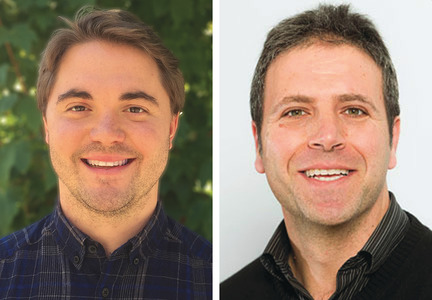
“… Robustness in chemistry can be enhanced by increasing the adoption of best data-sharing practices and the use of photos and videos for sharing methods and practical knowledge. Journals are an integral part of the foundation of scientific endeavor, and methods and data sharing are complementary practices that could lead to a step change in how we conduct and report research …” Read more in the Editorial by Mattias Björnmalm and Frank Caruso.
Angewandte Chemie International Edition 2018, 57, No. 5, 1122–1123.
Neville Compton
Diversity and Collaboration—Essential Ingredients for Success
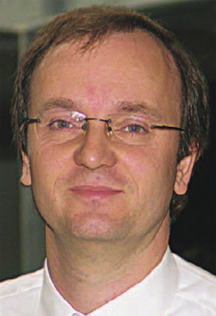
Diversity is the key to success: Chemistry and society benefit greatly from diversity and collaboration. Given the critical global challenges we face, chemists of all disciplines and nationalities need to work together to find viable solutions.
Angewandte Chemie International Edition 2018, 57, No. 1, 4–6.
EarlyView | 2025 | 2024 | 2023 | 2022 | 2021 | 2020 | 2019 | 2018 | 2017 | 2016 | 2015 | 2014 | 2013 | 2012 | 2011 | 2010 | 2009
Klaus Kümmerer
Sustainable Chemistry: A Future Guiding Principle
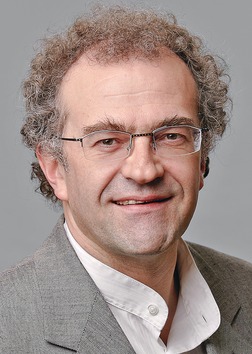
“… Chemistry is currently faced with one of the biggest challenges in its history. The main reaction to this is a search for how new resources can be utilized in the synthesis of (new) compounds. However, much more is needed to meet this challenge: Sustainable chemistry is simultaneously both a path and a goal. It is not a new subdiscipline of chemistry, but a guiding principle. It uses the knowledge of all chemical subdisciplines along the entire lifecycles of chemical products …” Read more in the Guest Editorial by Klaus Kümmerer.
Angewandte Chemie International Edition 2017, 56, No. 52, 16420–16421.
Jean-Christophe Leroux
Editorial: Drug Delivery: Too Much Complexity, Not Enough Reproducibility?
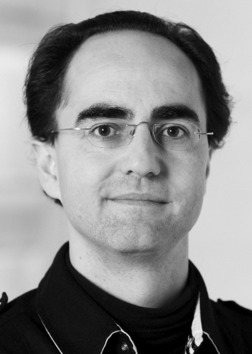
“… Drug-delivery research is experiencing a major expansion, however the upsurge in published reports does not correlate with therapeutic advances. Reporting complex systems seems to have prevailed over the desire to treat a disease effectively with a robust and safe formulation. Another important issue is the lack of reproducibility of published findings …” Read more in the Editorial by Jean-Christophe Leroux.
Angewandte Chemie International Edition 2017, 56, No. 48, 15170–15171.
Neville Compton, Peter Gölitz
The GDCh and Angewandte Chemie Celebrate the 150th Anniversary and a Change of Editor-in-Chief
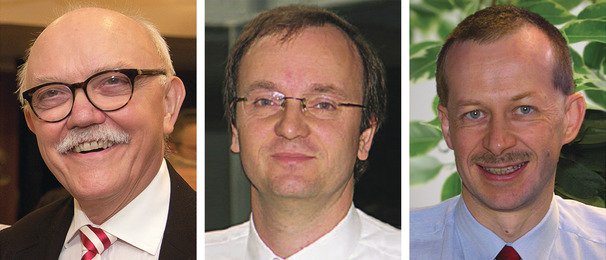
On September 10, 2017, the GDCh celebrated the anniversary of the founding of one of its predecessor organizations, and on September 11, to mark this anniversary an Angewandte Fest Symposium was held at the Freie Universität Berlin. On October 1, Neville Compton (middle) took over as Editor-in-Chief of Angewandte Chemie, a position held by Peter Gölitz (left) for 35 years. The Editor-in-Chief change was commented on by Alois Fürstner, chairman of the journal's Editorial Board.
Angewandte Chemie International Edition 2017, 56, No. 45, 13905–13909.
Jürgen Kaube
Science and the Great Challenges for Society
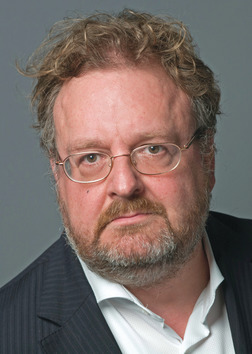
”… What is the purpose of science? Science is not only a method to solve problems but to identify them, thus regarding it as a servant of our civilization is to only half understand its potential. Science is far more one of the pillars of our civilization as it represents the institutionalization of the willingness to learn …” Find out more in the Editorial by Jürgen Kaube.
Angewandte Chemie International Edition 2017, 56, No. 37, 10964–10965.
Thisbe K. Lindhorst
Chemistry Has a Commitment to Life
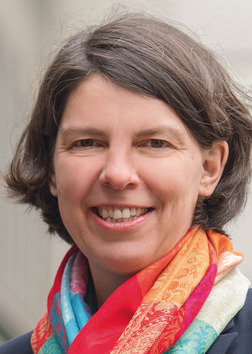
”… Science that only serves its own interests, that looks away when things get uncomfortable, or that surveys favored territories rather than boldly and curiously breaking new ground will endanger society's trust in the scientific search for truth. This is not a good perspective for a learned society. As a community with responsibilities and values, the GDCh must cultivate a culture that has the well-being of the entire population and the planet in mind …” Read more in the Editorial by Thisbe K. Lindhorst.
Angewandte Chemie International Edition 2017, 56, No. 37, 10962–10963.
Harald Schwalbe
Editorial: New 1.2 GHz NMR Spectrometers— New Horizons?
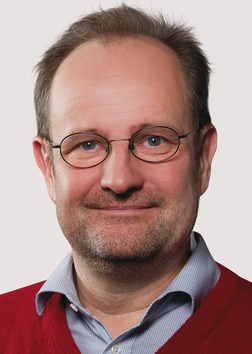
The latest ultrahigh-field NMR spectrometers are a huge technological challenge that require large financial investments. In his Guest Editorial, Harald Schwalbe justifies the need for spectrometers with higher magnetic field strengths. The important results from previous generations of high-field NMR spectrometers are discussed, and research areas are identified that will benefit from the latest spectrometers.
Angewandte Chemie International Edition 2017, 56, No. 35, 10252–10253.
Christopher Barner-Kowollik
Australia and Germany: Large Distance, Close Collaborations
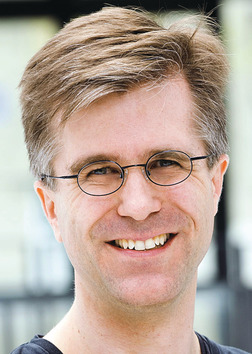
“… Both Australia and Germany have long traditions in the chemical sciences, however there is considerable scope to expand collaborations between the two chemical research communities. This can be achieved by collaborative funding opportunities, closing the gap between fundamental research and industrial applications, and targeted interactive symposia …” Read more in the Editorial by Christopher Barner-Kowollik.
Angewandte Chemie International Edition 2017, 56, No. 29, 8304–8305.
Roland A. Fischer
Feeling the Pulse of Chemistry—Already in Practical Laboratory Courses
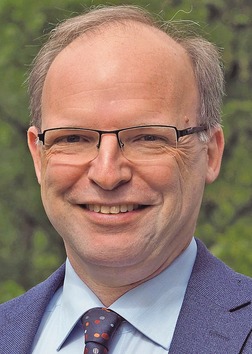
“… The lessons that students can draw from a lab course are unique throughout the entire study of chemistry. Equally important and valuable is the authentic lab experience and the constant repetition of the link between acquiring knowledge, thorough observations, logical thinking, self-critical tenacity, and capacity for success throughout the experiments. The ultimate gain is satisfaction ...” Read more in the Editorial by Roland A. Fischer.
Angewandte Chemie International Edition 2017, 56, No. 27, 7684–7685.
Douglas W. Stephan, Mark Lautens
Guest Editorial: Celebrating Canadian Chemistry
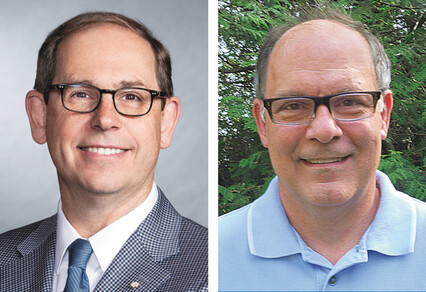
“… This issue of Angewandte Chemie commemorates the 100th anniversary of the Canadian Society for Chemistry. It contains contributions from Canadian and German chemists covering a broad and diverse array of subject areas. We are proud to reflect on the accomplishments of the Canadian chemical community and are excited about what the future holds …”
Angewandte Chemie International Edition 2017, 56, No. 22, 5948–5949.
Joseph S. Francisco, Ulrike Hahn, Helmut Schwarz
Scholarly Integrity
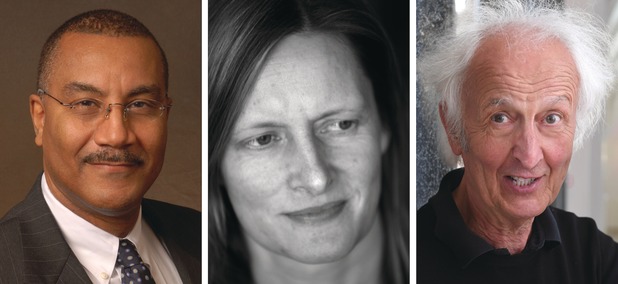
“… Scholarly integrity is not only the foundational bedrock of scientific inquiry, it is also the prerequisite for a positive image of scholarship … For individuals, integrity is an aspect of moral character and experience. For institutions, it is about creating an environment that promotes responsible conduct … In the first instance, research institutions must provide guidelines and codes of practice on scholarly integrity …” Read more in the Editorial by J. S. Francisco, U. Hahn, and H. Schwarz.
Angewandte Chemie International Edition 2017, 56, No. 15, 4070–4071.
Brigitte Voit
New Polymers: Beautiful Structures, But How Can We Bring Them to the Market?
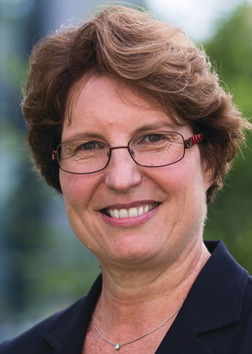
“… Nobody in our academic polymer community doubts that polymers are the materials of the 21st century, and will continue to enable and drive the development of future technologies, and ensure our high standard of living and wellbeing in the context of both an aging population and the energy transformation. However, we should be aware that there is a difference between polymers and plastics …” Read more about this perspective in the Guest Editorial by Brigitte Voit.
Angewandte Chemie International Edition 2017, 56, No. 11, 2810–2811.
Christof M. Niemeyer
Engineering for Life Sciences: A Fruitful Collaboration Enabled by Chemistry
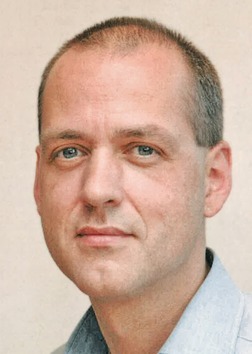
“… The interaction of engineering and life sciences has a long history that is characterized by a mutual dependency. The role of chemistry in these developments is to connect the engineers’ instrumentation with the life scientists’ specimens. This very successful partnership will further continue to produce essential and innovative solutions for future challenges …” Read more in the Guest Editorial by Christof M. Niemeyer.
Angewandte Chemie International Edition 2017, 56, No. 8, 1934–1935.
Richard A. Lerner, Sydney Brenner
DNA-Encoded Compound Libraries as Open Source: A Powerful Pathway to New Drugs

“… We envisioned an iterative system where a unique DNA tag identifier that encoded the event was appended to each newly formed molecule. These vast collections of molecules are known today as DNA- encoded chemical libraries (DECLs), and allow scientists to do selections on the benchtop that previously required access to large and complex high-throughput screening centers …” Read more in the Guest Editorial by Richard A. Lerner and Sydney Brenner.
Angewandte Chemie International Edition 2017, 56, No. 5, 1164–1165.
Peter Gölitz
150 Years of the German Chemical Society (GDCh), New Board Members, and More
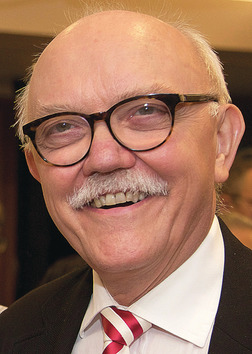
Should manuscripts by young authors with low H indices be directly rejected? Such crazy ideas can be extrapolated from the notion that lots of citations are a guarantee for high quality. Such flawed developments in scientific publishing are one theme of the Editorial by the Editor in Chief of Angewandte Chemie, as are far more positive aspects, such as the activities of the German Chemical Society (GDCh; Gesellschaft Deutscher Chemiker) in it anniversary year, 2017.
Angewandte Chemie International Edition 2017, 56, No. 1, 4–7.
EarlyView | 2025 | 2024 | 2023 | 2022 | 2021 | 2020 | 2019 | 2018 | 2017 | 2016 | 2015 | 2014 | 2013 | 2012 | 2011 | 2010 | 2009
Ferdi Schüth
A Vibrant Science Lives from Within
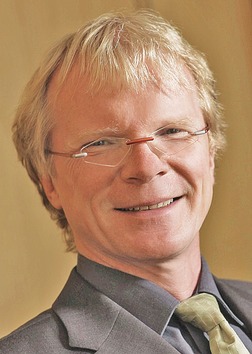
“… For a discipline to remain lively and also attractive to young scientists, it needs to have its intrinsic key questions, grand intellectual challenges with the potential of stimulating the minds of generations of scientists, and of triggering discoveries in often unrelated fields. The origin of life is such a question for the field of chemistry. We should use this problem to illustrate the fascination of our science …” Read more in the Editorial by Ferdi Schüth.
Angewandte Chemie International Edition 2016, 55, No. 48, 14878–14879.
Peter Gölitz
Preprints, Impact Factors, and Unethical Behavior, but also Lots of Good News
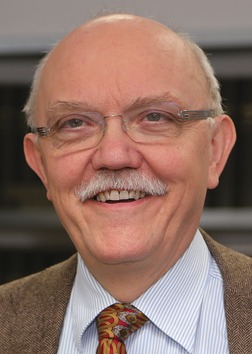
Preprints as well? There is already the Accepted Article (published directly after refereeing and author revision), the Early-View/ASAP-Version (after refereeing, editing and proofing), and the final Version of Record. The problems with preprints are discussed in this Editorial along with the undeclared resubmission of previously rejected manuscripts: publication times, color costs, and Angewandte Symposia are further topics.
Angewandte Chemie International Edition 2016, 55, No. 44, 13621–13623.
Robert G. Bergman, Rick L. Danheiser
Reproducibility in Chemical Research
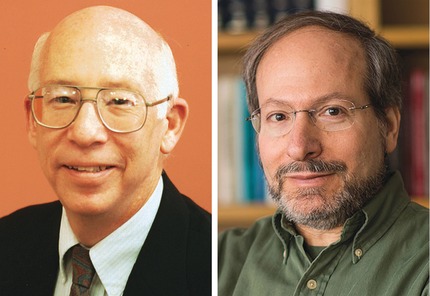
“… To what extent is reproducibility a significant issue in chemical research? How can problems involving irreproducibility be minimized? … Researchers should be aware of the dangers of unconscious investigator bias, all papers should provide adequate experimental detail, and Reviewers have a responsibility to carefully examine papers for adequacy of experimental detail and support for the conclusions …” Read more in the Editorial by Robert G. Bergman and Rick L. Danheiser.
Angewandte Chemie International Edition 2016, 55, No. 41, 12548–12549.
Luis A. Oro
Chemists Creating a European Identity through Conferences and Journals
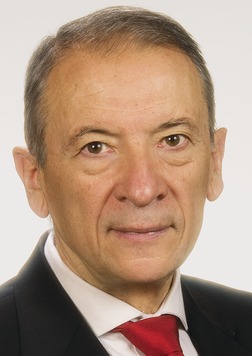
“ … The 6th EuCheMS Chemistry Congress will take place in Seville in September 2016. EuCheMS represents more than 160 000 chemists from more than 40 member societies. ChemPubSoc Europe is an organization of 16 European chemical societies from 15 countries. These initiatives have contributed significantly to the creation of a European identity for chemistry …” Read more in the Editorial by Luis A. Oro.
Angewandte Chemie International Edition 2016, 55, No. 37, 10924–10925.
Clemens Walther
The Active Field of Nuclear and Radiochemistry: Not Just Nuclear Power
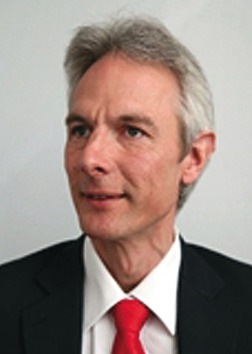
“ … The number of universities teaching nuclear and radiochemistry has decreased, not least as radiochemistry is erroneously linked to the use of nuclear power … Radiochemistry is essential for a variety of fields, including radiopharmaceuticals, as well as the management of radioactive waste … we are facing a lack of specialists in the area of radiation protection …” Read more in the Editorial by Clemens Walther.
Angewandte Chemie International Edition 2016, 55, No. 32, 9102–9103.
Thisbe K. Lindhorst
Chemistry is a Key Science for the Future of India and the World
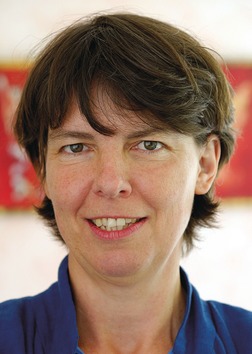
The next Angewandte Symposium, which is dedicated to chemical biology and bioorganic chemistry, will take place on July 13, 2016 during the CRSI National Symposium in Chemistry. This is an occasion to reflect on the international nature and societal responsibility of science, and to place the focus on chemical research in India. The number of Communications from India submitted to Angewandte Chemie has increased by 140 % from 2010 to 2015, and the number published by as much as 325 % … Read more in the Editorial by Thisbe Lindhorst.
Angewandte Chemie International Edition 2016, 55, No. 27, 7554–7555.
Günter Helmchen
The 50th Anniversary of the Cahn-Ingold-Prelog Specification of Molecular Chirality
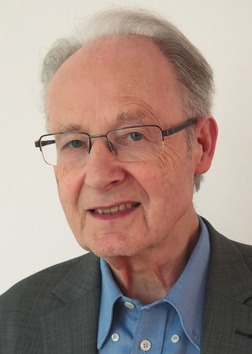
“… Just over 50 years ago, Robert S. Cahn, Sir Christopher Ingold, and Vladimir Prelog published the Review ‘Specification of Molecular Chirality’ in Angewandte Chemie. The article would change the everyday language of the chemist by bringing the term chirality to their attention. Today, the CIP system is the specification tool in organic chemistry …” Read more in the Editorial by Günter Helmchen.
Angewandte Chemie International Edition 2016, 55, No. 24, 6798–6799.
Avelino Corma
Heterogeneous Catalysis: Understanding for Designing, and Designing for Applications
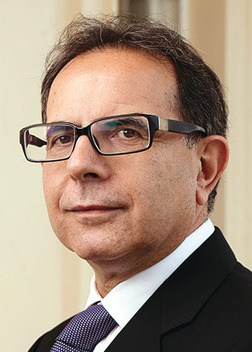
“… Despite the introduction of high-throughput and combinatorial methods that certainly can be useful in the process of catalysts optimization, it is recognized that the generation of fundamental knowledge at the molecular level is key for the development of new concepts and for reaching the final objective of solid catalysts by design …” Read more in the Editorial by Avelino Corma.
Angewandte Chemie International Edition 2016, 55, No. 21, 6112–6113.
Qi-Lin Zhou
Transition-Metal Catalysis and Organocatalysis: Where Can Progress Be Expected?
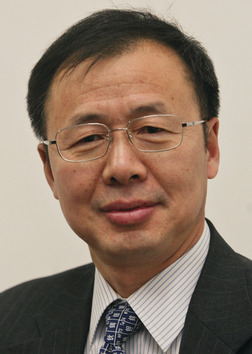
“… Most transition-metal catalysts and organocatalysts do not meet the requirements for modern industrial manufacturing processes. Their main limitation is low efficiency. The need to develop highly efficient catalysts and related catalytic reactions is a never-ending challenge in synthetic chemistry …” Read more in the Editorial by Qi-Lin Zhou.
Angewandte Chemie International Edition 2016, 55, No. 18, 5352–5353.
Uwe T. Bornscheuer
Biocatalysis: Successfully Crossing Boundaries

“ … The creation of robust biocatalysts with desired properties was previously challenging. Nowadays, knowledge of bioinformatics, protein engineering, molecular biology, high-throughput screening, as well as experience in biocatalysis and organic synthesis, are key skills to identify, develop, and implement novel synthetic routes …” Read more in the Editorial by Uwe T. Bornscheuer.
Angewandte Chemie International Edition 2016, 55, No. 14, 4372–4373.
Ian Manners
Are the Current Changes Good or Bad for Chemistry?
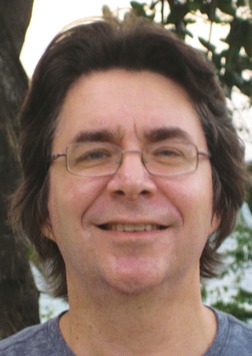
“… The key discoveries on which many commercial products are ultimately based are often the result of fundamental research performed with no (commercial) end-use even contemplated. It is remarkable that the idea of supporting truly fundamental research is under assault to varying degrees worldwide. Humankind will benefit from an environment where the emergence of completely new ideas is encouraged …” Read more in the Editorial by Ian Manners
Angewandte Chemie International Edition 2016, 55, No. 12, 3834–3835.
Richard N. Zare
Better Practices in Scientific Publishing
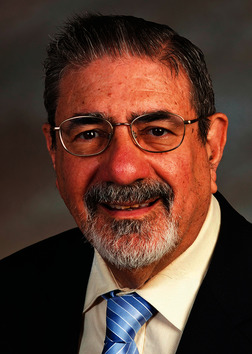
“… I suggest two possible changes that might make better practices in scientific publishing. A mechanism is needed to recognize the valuable task that reviewers perform and I would also like to have a brief explanation of the individual author contributions to each manuscript …” Read more in the Editorial by Richard N. Zare.
Angewandte Chemie International Edition 2016, 55, No. 8, 2606–2607.
Martina Havenith
Solvation Science: A New Interdisciplinary Field
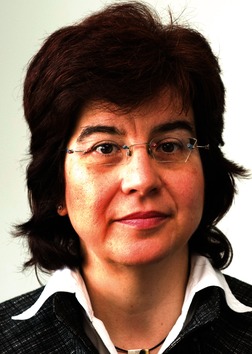
“… Solvents are often considered to be an inert media, in which reactions occur. A molecular-level, bottom-up description of solvation that is able to predict the properties of new solvent systems, also for industrial applications has come within reach. Solvents are now increasingly recognized as playing an active role in their own right in various processes … Read more in the Editorial by Martina Havenith.
Angewandte Chemie International Edition 2016, 55, No. 4, 1218–1219.
Peter Gölitz
Black Sheep, Points of Light, and Angewandte Chemie
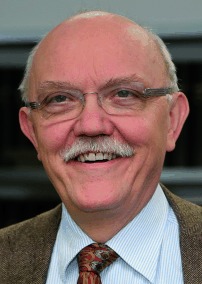
From deception to plagiarism, the range of unethical behavior in the publishing practices of scientists is broad. However, scientists should not all be tarred with the same brush. This theme is at the heart of the Editorial that also illuminates some happier events, such as the nomination of new members of the Editorial and International Advisory Boards.
Angewandte Chemie International Edition 2016, 55, No. 1, 4–5.
EarlyView | 2025 | 2024 | 2023 | 2022 | 2021 | 2020 | 2019 | 2018 | 2017 | 2016 | 2015 | 2014 | 2013 | 2012 | 2011 | 2010 | 2009
Advisors and Supporters Angew. Chem. Int. Ed. 52/2015
Angewandte Chemie International Edition 2015, 54, No. 52, 15613–15615.
Joseph S. Francisco
International Scientific Collaborations: A Key to Scientific Success

“ …︁ Cross-cultural collaboration, when it works, is synergistic, and brings understanding between partners that neither is likely to be able to develop alone. There are people in the world that know something, but nobody knows everything. International collaborations in science bring together and capitalize on the dispersal of knowledge and resources across the globe, and the human desire to advance knowledge …︁” Read more in the Editorial by Joseph S. Francisco.
Angewandte Chemie International Edition 2015, 54, No. 50, 14984–14985.
Chi-Huey Wong
Chemistry in Taiwan and Academia Sinica

“…︁ Taiwan has successfully developed semiconductor, and information and communication technology industries that earned Taiwan a good reputation and brought prosperity to the country. Now Taiwan has recognized the need for a disruptive change that will require the establishment of new industries. Basic research remains the major focus of the chemistry community …︁” Read more in the Editorial by Chi-Huey Wong.
Angewandte Chemie International Edition 2015, 54, No. 46, 13472–13473.
Helmut Schwarz, Itamar Willner, Ilan Marek
The Scientific Bridge: Fifty Years of Germany-Israel Diplomatic Relations

“…︁ Fifty years ago, out of the ashes of the Second World War, the German Chancellor, Konrad Adenauer, and the Israeli Prime Minister, David Ben-Gurion, initiated the establishment of diplomatic relations between Germany and Israel. This special issue commemorates the fruitful and mutually enriching long-term collaborations between Israeli and German scientists …︁ Read more in the Editorial by Helmut Schwarz, Itamar Willner, and Ilan Marek.
Angewandte Chemie International Edition 2015, 54, No. 42, 12182–12183.
Thorsten Bach
More Chemistry with Light! More Light in Chemistry!

“…︁ Why is chemistry overlooked when talking about light? Is the photon a physical particle per se? Are all important light-induced processes biological? Maybe the role of light for chemistry and the role of chemistry for light may be far less important than a few eccentric scientists would like to believe. From the perspective of a synthetically oriented photochemist, however, the facts are different …︁” Read more in the Editorial by Thorsten Bach.
Angewandte Chemie International Edition 2015, 54, No. 39, 11294–11295.
Susumu Kitagawa
Porous Materials and the Age of Gas

“…︁ Materials that achieve mass storage and highly efficient separation of gases cannot be realized by simply improving conventional technology. The achievements in the field of metal-organic frameworks have rapidly and significantly advanced materials research that is vital to addressing energy and environmental issues…︁” Read more in the Editorial by Susumu Kitagawa.
Angewandte Chemie International Edition 2015, 54, No. 37, 10686–10687.
Klaus Müllen
Chemistry in a Materials World

“…︁ Chemists are expected more and more to explain their contributions to the public. This could be straightforward since there is no new technology without improved materials, especially in fields of immense societal importance such as energy, health, water, or sustainability. Can’t these unsolved scientific and technical challenges motivate chemists to offer their superior abilities in synthesis and join the field of materials? …︁” Read more in the Editorial by Klaus Müllen.
Angewandte Chemie International Edition 2015, 54, No. 35, 10040–10042.
Andreas Hirsch
The Graphene Flagship—A Giant European Research Project

“…︁The European Commission decided to launch the Graphene Flagship Project in 2013. The project brings together leading research laboratories from all over Europe with a wide span of different expertise. The Graphene Flagship (together with the Human Brain Project) is the largest collaborative research project that has ever been set up in Europe …︁” Read more in the Editorial by Andreas Hirsch.
Angewandte Chemie International Edition 2015, 54, No. 32, 9132–9133.
Vivian Wing-Wah Yam
Inorganic Chemistry: A Prestigious History and a Bright Future

“…︁Inorganic chemistry has evolved from fundamental studies to the forefronts of interdisciplinary research. What was considered to be impossible or elusive has now become feasible. While we still keep our identity as inorganic chemists, the sharp demarcation between the divisions of different subject disciplines or subdisciplines is no longer relevant …︁” Read more in the Editorial by Vivian W.-W. Yam.
Angewandte Chemie International Edition 2015, 54, No. 29, 8304–8305.
Michel Orrit
Single-Molecule Chemistry is More than Superresolved Fluorescence Microscopy

„There is more than what meets the eye. After 25 years of optical experiments on single molecules, it is time to reflect on the insights and the present or potential applications that single-molecule optics, and more generally single-molecule chemistry, have brought to us. Subtle and detailed information can be gleaned from the wealth of signals single molecules relay to us from their nanometer-scale environment …︁“ Read more in the Editorial by Michel Orrit.
Angewandte Chemie International Edition 2015, 54, No. 28, 8004–8005.
Marc Fontecave
Editorial: Sustainable Chemistry for Energizing the Planet

Angewandte Chemie International Edition 2015, 54, No. 24, 6946–6947.
Christoph Ettl, Martin Stratmann
Editorial: Chemistry and the Max Planck Society: A Stable Bond Resonating into the Future

Angewandte Chemie International Edition 2015, 54, No. 20, 5798–5799.
Jay S. Siegel
Half a Century of the Bürgenstock Conference: A Pilgrim’s Tale

“…︁ The Bürgenstock program always allows for important scientific discussion. It is clear that this meeting is valuable for the scientific community as it is on one hand important for its deep historical significance, and on the other hand crucial for what it preserves of great scientific tradition for future generations. Every meeting contained a lesson learned and further brought together the family of stereochemists …︁” Read more in the Editorial by Jay S. Siegel.
Angewandte Chemie International Edition 2015, 54, No. 17, 4974–4975.
Andreas Kreimeyer
150 Years of BASF

“I cordially invite you to bring in your creativity on our interactive anniversary platform”, Andreas Kreimeyer, Research Executive Director of BASF, challenges all readers in the Editorial of this issue of Angewandte Chemie. This edition commemorates the 150th anniversary of BASF with a collection of Reviews and Essays that address the contributions of chemistry to the fields of energy, nutrition, and urban living.
Angewandte Chemie International Edition 2015, 54, No. 11, 3156–3158.
Henning Hopf
The German Chemical Society (GDCh) and Nazi Germany

“National Socialists were enthusiastic about technology and the natural sciences. Chemistry was of the highest importance in helping the Third Reich to become independent of imports from foreign countries and was crucial for the preparation of the war. The German chemical societies were of major importance in coordinating the contribution of their members to the war …︁” Read more in the Editorial by Henning Hopf.
Angewandte Chemie International Edition 2015, 54, No. 9, 2566–2567.
Roberta Sessoli
Italian Research at a Turning Point: An Opportunity that Cannot Be Missed

Angewandte Chemie International Edition 2015, 54, No. 5, 1374–1375.
Peter Gölitz
The Impact Factor of Angewandte Chemie …︁

What does the Impact Factor tell us? This question is addressed by Peter Gölitz in his Editorial, particularly in light of the surprising drop in the 2013 Impact Factor of Angewandte Chemie. An explanation is sought and found. Most importantly the influence of the individual variables that determine the Impact Factor needs to be understood.
Angewandte Chemie International Edition 2015, 54, No. 1, 4–6.
EarlyView | 2025 | 2024 | 2023 | 2022 | 2021 | 2020 | 2019 | 2018 | 2017 | 2016 | 2015 | 2014 | 2013 | 2012 | 2011 | 2010 | 2009
Thomas Geelhaar
Chemistry: Interdisciplinary and International—and with a Sense of History

Angewandte Chemie International Edition 2014, 53, No. 50, 13626–13627.
Younan Xia
Editorial: Are We Entering the Nano Era?

Angewandte Chemie International Edition 2014, 53, No. 46, 12268–12271.
J. Fraser Stoddart
Putting Mechanically Interlocked Molecules (MIMs) to Work in Tomorrow’s World

Angewandte Chemie International Edition 2014, 53, No. 42, 11102–11104.
Huw M. L. Davies, Daniel Morton
C-H Functionalization: Collaborative Methods to Redefine Chemical Logic

Angewandte Chemie International Edition 2014, 53, No. 39, 10256–10258.
Benjamin List
Catalytic Processes that Changed the World: 100 Years Max-Planck-Institut für Kohlenforschung

“…︁ In this special issue of Angewandte Chemie, which is indeed very special for us, you as a reader should get an impression of what, in our opinion, constitutes the research in and around the Max-Planck-Institut für Kohlenforschung. You will notice the diversity of the research topics that are covered by researchers at the Institute …︁ Read more in the Editorial by Benjamin List.
Angewandte Chemie International Edition 2014, 53, No. 33, 8528–8530.
Carsten Schultz
Editorial: The European Molecular Biology Laboratory (EMBL)—Its Anniversary and Its Chemistry

Angewandte Chemie International Edition 2014, 53, No. 30, 7680–7681.
Jay T. Goodwin, David G. Lynn
Editorial: Holistic Education in Times of Specialization and Globalization

Angewandte Chemie International Edition 2014, 53, No. 27, 6832–6833.
Roland A. Fischer
Metal-Organic Frameworks—The New Jack of All Trades for (Inorganic) Chemists

“…︁ Today, the research contexts in which the work on MOFs are, or will be placed, are enormously diverse and multilingual, and the technical backgrounds and motives of those involved develop equally as diversely, sometimes with a very distant reference to the original. Therefore, distinctions and care in the use of scientific language and expression are important. …︁” Read more in the Editorial by Roland A. Fischer.
Angewandte Chemie International Edition 2014, 53, No. 23, 5716–5717.
K. C. Nicolaou
Academic-Industrial Partnerships in Drug Discovery and Development

Angewandte Chemie International Edition 2014, 53, No. 19, 4730.
Ilan Marek
Chemistry in Israel—at a Crossroads?
Angewandte Chemie International Edition 2014, 53, No. 15, 3754–3755.
Adam Heller
Not All Research Is Equal
Angewandte Chemie International Edition 2014, 53, No. 11, 2782–2783.
Martin A. Suhm
Guinness Molecules: Identifying Lowest-Energy Structures
Angewandte Chemie International Edition 2014, 53, No. 7, 1714–1715.
Gautam R. Desiraju
Crystallography and Chemistry: An Ongoing Engagement

Angewandte Chemie International Edition 2014, 53, No. 3, 604–605.
Mario Müller
Editorial: Angewandte Chemie Online, Anywhere

Angewandte Chemie International Edition 2014, 53, No. 1, 10–12.
Peter Gölitz
Editorial: Angewandte Chemie Always New

Angewandte Chemie International Edition 2014, 53, No. 1, 4–7.
EarlyView | 2025 | 2024 | 2023 | 2022 | 2021 | 2020 | 2019 | 2018 | 2017 | 2016 | 2015 | 2014 | 2013 | 2012 | 2011 | 2010 | 2009
François Diederich
Are We Refereeing Ourselves to Death? The Peer-Review System at Its Limit

“... Since all manuscripts need to be reviewed, the requests for referee reports become increasingly frequent. It becomes impossible to serve all these requests as the scientists also need to do research and teaching and fulfill other duties, depending on their employment at a university, non-university institutions, or in industry...” Read more in the Editorial by François Diederich.
Angewandte Chemie International Edition 2013, 52, No. 52, 13828–13829.
Wilhelm T. S. Huck
Learning a New Language: Moving Countries and Changing Subjects

Angewandte Chemie International Edition 2013, 52, No. 50, 13110–13111.
Katharina Al-Shamery
Editorial: Scientists (of the World) Behave!

“…︁ Scientists need to be able to trust and rely on each other as a matter of care and responsibility towards our society.My further personal plea is that we have to give our students an awareness of good scientific practice and help them to find self-confidence …︁” Read more in the Editorial by Katharina Al-Shamery.
Angewandte Chemie International Edition 2013, 52, No. 46, 11946–11947.
Jeremy K. M. Sanders
Editorial: How Can Change Be Achieved?— Energy Saving in Cambridge

Angewandte Chemie International Edition 2013, 52, No. 42, 10914–10915.
Otto S. Wolfbeis
Editorial: Probes, Sensors, and Labels: Why is Real Progress Slow?

Angewandte Chemie International Edition 2013, 52, No. 38, 9864–9865.
Wolfgang Plischke
150 Years of Bayer: Success through Science-Based Innovation
Angewandte Chemie International Edition 2013, 52, No. 36, 9335–9336.
Brady Haran, Martyn Poliakoff
Editorial: Conveying the Excitement of Chemistry on YouTube
Angewandte Chemie International Edition 2013, 52, No. 34, 8758–8759.
Claus Feldmann
Metastable Solids—Terra Incognita Awaiting Discovery

Angewandte Chemie International Edition 2013, 52, No. 30, 7610–7611.
Michael Hampe
Editorial: Science on the Market: What Does Competition Do to Research?

Angewandte Chemie International Edition 2013, 52, No. 26, 6550–6551.
John Meurig Thomas
Intellectual Freedom in Academic Scientific Research under Threat

“…︁ In Great Britain and most probably also in other countries, a restoration of the proven qualities of intellectual freedom is mandatory. It has contributed so much to the culture, and facilitated the economic growth and the communal well-being, of the nation …︁” Read more in the Editorial by Sir John Meurig Thomas.
Angewandte Chemie International Edition 2013, 52, No. 22, 5654–5655.
Wolfgang A. Herrmann
Editorial: Tenure Track: The Royal Road to Professorship?

Angewandte Chemie International Edition 2013, 52, No. 18, 4700–4701.
Craig J. Hawker
Editorial: Effective Presentations—A Must

Angewandte Chemie International Edition 2013, 52, No. 14, 3780–3781.
Petra Schwille
Editorial: Chemistry Needed: Synthetic Biology as a New Incentive for Interdisciplinarity

Angewandte Chemie International Edition 2013, 52, No. 10, 2616–2617.
Wolfram Koch
Editorial: Made in Germany: 125 Years of Angewandte Chemie

Angewandte Chemie International Edition 2013, 52, No. 10, 2614.
Christina Moberg
Editorial: Chemistry in Sweden—A Midsummer Night’s Dream?

“...From an international perspective, Swedens research expenditure is high at 3.4% of the gross domestic product (GDP), compared to the average of 3.0% within the OECD countries. However, merely 24% of the funding in Sweden comes from the government...” Read more in the Editorial by Christina Moberg.
Angewandte Chemie International Edition 2013, 52, No. 7, 1844–1845.
Jens K. Nørskov, Thomas Bligaard
The Catalyst Genome

“…︁ The quest for the materials genome—the properties of a material that define its functional properties—has started. This signifies a transition to a new era of materials research where large amounts of materials data become available. The expectation is that this will significantly speed up the discovery of new materials …︁” Read more in the Editorial by J. K. Nørskov and T. Bligaard.
Angewandte Chemie International Edition 2013, 52, No. 3, 776–777.
Peter Gölitz
Champagne and Fireworks: Angewandte Chemie Celebrates Its Birthday

A rousing force emanates from the important findings, which, in turn, inspires receptive natures to strive for achievements of their own. We produce our journal for such people. And we seek out these avant-garde. This constitutes our entire program. This program for Angewandte Chemie was formulated by Wilhelm Foerst 50 years ago, and still holds today. It is at the heart of this Editorial on the occasion of the journal’s 125th anniversary, in which a monument for the unknown referee is proposed.
Angewandte Chemie International Edition 2013, 52, No. 1, 8–10.
François Diederich
125 Years Angewandte Chemie

“…︁ Angewandte Chemie looks back with pride on 125 years of successful publishing. The Journal stands for quality and innovation. Attractive, often artistically designed cover pages, informative tables of contents, and exciting author profiles are all aspects of the journal to which we have become accustomed …︁” Read more in the Editorial by François Diederich.
Angewandte Chemie International Edition 2013, 52, No. 1, 6–7.
Barbara Albert
Chemistry at Its Best

“…︁ Contemplating the ideas published in Angewandte Chemie as well as the concepts and visions that can be derived from them allows us to experience cutting-edge chemistry. …︁” Read more in the Editorial by Barbara Albert
Angewandte Chemie International Edition 2013, 52, No. 1, 5.
EarlyView | 2025 | 2024 | 2023 | 2022 | 2021 | 2020 | 2019 | 2018 | 2017 | 2016 | 2015 | 2014 | 2013 | 2012 | 2011 | 2010 | 2009
J. Fraser Stoddart
Editorial: From Supramolecular to Systems Chemistry: Complexity Emerging out of Simplicity

Angewandte Chemie International Edition 2012, 51, No. 52, 12902–12903.
Alain Fuchs
Chemistry in France: A Hotbed for New Schools of Thought
Angewandte Chemie International Edition 2012, 51, No. 51, 12632–12633.
Bruce C. Gates, Tobin J. Marks
Defragmenting Catalysis
Angewandte Chemie International Edition 2012, 51, No. 47, 11644–11645.
Colin L. Raston
Editorial: Australian Chemistry under the Spotlight

Angewandte Chemie International Edition 2012, 51, No. 43, 10676–10677.
Peter Gölitz
Editorial: Impact Factors, Open Access, and 125 Years of Angewandte Chemie

Angewandte Chemie International Edition 2012, 51, No. 39, 9704–9706.
Torsten Hoffmann, Rainer Metternich
The Future of Medicinal Chemistry
Angewandte Chemie International Edition 2012, 51, No. 35, 8670–8671.
Richard N. Zare
Editorial: Assessing Academic Researchers

Angewandte Chemie International Edition 2012, 51, No. 30, 7338–7339.
Herbert Waldmann
Editorial: Drug Discovery …︁ The Third in the Band!

Angewandte Chemie International Edition 2012, 51, No. 26, 6284–6285.
Bengt Nordén
The Molecular Frontiers Foundation: Capturing the Interest of Young Minds

Angewandte Chemie International Edition 2012, 51, No. 22, 5262–5263.
Chunli Bai
International Scientific Cooperation Is Key for The Chinese Academy of Sciences

“...The past 30 years have seen an enormous effort to develop science and scientific institutions in China, and the last 20 years in particular have seen an active engagement in international cooperation Read more...” in the Editorial by Chunli Bai.
Angewandte Chemie International Edition 2012, 51, No. 18, 4244–4246.
Nazario Martín
Editorial: Chemistry in Spain—Much Achieved and Much to Be Done

y
Angewandte Chemie International Edition 2012, 51, No. 14, 3280–3281.
Hartmut Michel
Editorial: The Nonsense of Biofuels

Angewandte Chemie International Edition 2012, 51, No. 11, 2516–2518.
Roald Hoffmann
Editorial: What, Another Nobel Prize in Chemistry to a Nonchemist?

Angewandte Chemie International Edition 2012, 51, No. 8, 1734–1735.
Jan Reedijk
Editorial: Citations and Ethics
Angewandte Chemie International Edition 2012, 51, No. 4, 828–830.
Peter Gölitz
Editorial: “Good things speak for themselves …︁
Angewandte Chemie International Edition 2012, 51, No. 1, 4–9.
EarlyView | 2025 | 2024 | 2023 | 2022 | 2021 | 2020 | 2019 | 2018 | 2017 | 2016 | 2015 | 2014 | 2013 | 2012 | 2011 | 2010 | 2009
Daniela Kneißl, Helmut Schwarz
Editorial: Fundamental Research Needs Excellent Scientists and its Own Space
Angewandte Chemie International Edition 2011, 50, No. 52, 12370–12371.
Rutger van Santen
Editorial: Problem Solvers and Thinkers
Angewandte Chemie International Edition 2011, 50, No. 50, 11808–11809.
Povl Krogsgaard-Larsen, Peter Thostrup, Flemming Besenbacher
Editorial: Scientific Social Responsibility: A Call to Arms
Angewandte Chemie International Edition 2011, 50, No. 46, 10738–10740.
Yuan T. Lee, Andrew Wei-Chih Yang
Editorial: Chemistry, Science, and Our Sustainable Future
Angewandte Chemie International Edition 2011, 50, No. 44, 10260–10261.
Walter Thiel
Theoretical Chemistry—Quo Vadis?
Angewandte Chemie International Edition 2011, 50, No. 40, 9216–9217.
Peter Atkins
Educating Chemists for the Future
Angewandte Chemie International Edition 2011, 50, No. 37, 8442–8443.
Richard N. Zare
Why Help a Growing Scientific Giant?

Richard N. Zare
Angewandte Chemie International Edition 2011, 50, No. 36, 8202–8203.
Hanno Wild, Dirk Heimbach, Christoph Huwe
Editorial: The Importance of Chemistry for the Future of the Pharma Industry
Angewandte Chemie International Edition 2011, 50, No. 33, 7452–7453.
Robert Schlögl
Chemistry’s Role in Regenerative Energy
Angewandte Chemie International Edition 2011, 50, No. 29, 6424–6426.
Gautam R. Desiraju
Editorial: Science in a Changing World
Angewandte Chemie International Edition 2011, 50, No. 25, 5590–5591.
Michael Dröscher
Angewandte Chemie International Edition Celebrates Its 50th Birthday

Angewandte Chemie International Edition Celebrates Its 50th Birthday
Angewandte Chemie International Edition 2011, 50, No. 21, 4718–4719.
Peter Gölitz
Editorials ...
Angewandte Chemie International Edition 2011, 50, No. 19, 4239.
Andreas Kreimeyer
New Technology Horizons: Chemistry as Innovation Driver
Angewandte Chemie International Edition 2011, 50, No. 15, 3328–3330.
Diane Smith
Editorial: Women in Chemistry
Angewandte Chemie International Edition 2011, 50, No. 4, 782.
François Diederich
25 Years Full of Chemical Discovery
Angewandte Chemie International Edition 2011, 50, No. 1, 8–12.
Peter Gölitz
50 Years of the International Edition: More Substance than Appearance
Angewandte Chemie International Edition 2011, 50, No. 1, 4–7.
EarlyView | 2025 | 2024 | 2023 | 2022 | 2021 | 2020 | 2019 | 2018 | 2017 | 2016 | 2015 | 2014 | 2013 | 2012 | 2011 | 2010 | 2009
Peter Goelitz
Editorial: Frontiers of Chemistry in Paris
Angewandte Chemie International Edition 2010, 49, No. 7, 1173.
Peter Gölitz
Twitter, Facebook, and Open Access …
Angewandte Chemie International Edition 2010, 49, No. 1, 4–6.
EarlyView | 2025 | 2024 | 2023 | 2022 | 2021 | 2020 | 2019 | 2018 | 2017 | 2016 | 2015 | 2014 | 2013 | 2012 | 2011 | 2010 | 2009
Peter Gölitz
Angewandte Chemie and Catalysis
Angewandte Chemie International Edition 2009, 48, No. 36, 6566–6567.
Peter Gölitz
A Source of Joy …︁
Angewandte Chemie International Edition 2009, 48, No. 1, 4–6.





